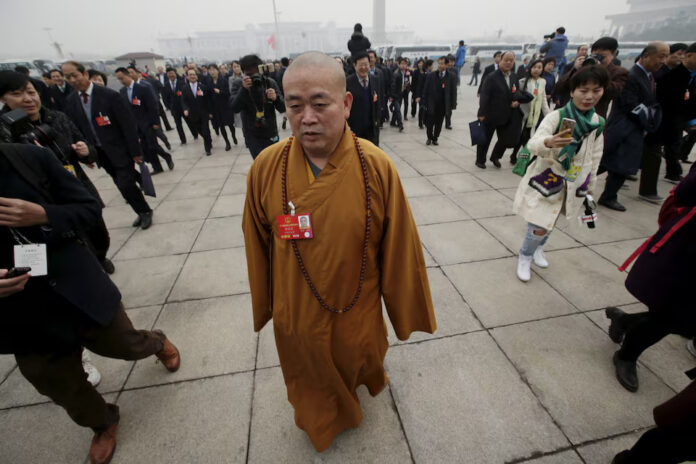
The abbot of China’s world-renowned Shaolin Temple, Shi Yongxin, is under criminal investigation for alleged embezzlement of temple funds and maintaining inappropriate relationships with women, Chinese religious authorities confirmed over the weekend. The scandal has sent shockwaves through China’s religious and cultural communities, given Shi’s high profile and the temple’s historic stature.
In a statement posted Sunday on its official social media account, the Shaolin Temple said that Shi, 59, is “suspected of criminal offences, misappropriating and embezzling project funds and the temple’s assets.” It added that he is under joint investigation by multiple government and religious oversight agencies.
The temple further revealed that Shi had “seriously violated Buddhist precepts” by maintaining improper relationships with multiple women over an extended period and fathering at least one child out of wedlock — behavior the temple condemned as a breach of religious discipline and public trust.
Shi could not immediately be reached for comment, and the Shaolin Temple did not respond to calls from Reuters. The charges mark a stunning fall from grace for the man who once served as one of the most influential religious figures in China and was instrumental in transforming the ancient temple into a global brand.
Nicknamed the “CEO monk,” Shi gained notoriety for aggressively commercializing the 1,500-year-old Shaolin Temple, located in China’s Henan province and celebrated worldwide as the birthplace of kung fu. Under his leadership, the temple launched ventures in e-commerce, publishing, medicine, kung fu performance tours, film production, asset management, and even real estate.
In 2008, the temple opened an online store selling Shaolin-branded items including tea, shoes, T-shirts, and a kung fu instruction manual priced at 9,999 yuan (approximately $1,395).
The Buddhist Association of China, a state-supervised body, issued a separate statement on Monday confirming that it had revoked Shi’s ordination certificate. “His behaviors are extremely deplorable in nature, have seriously damaged the reputation of the Buddhist community, and tarnished the image of monks,” the association said.
Shi, born Liu Yingcheng, entered monastic life in 1981 and rose quickly through the ranks. He began overseeing the temple in 1987 and was officially named abbot in 1999. Over his decades-long tenure, Shi became a media-savvy figure with a prominent presence on social media platform Weibo, where he amassed more than 882,000 followers and posted almost daily.
He also served as a delegate to China’s National People’s Congress—the country’s largely ceremonial legislature—for nearly two decades until 2018, and held the role of deputy head of the Buddhist Association of China.
Allegations against Shi first surfaced publicly in 2015, when an anonymous letter circulated online accused him of sexual misconduct and abuse of power. The temple at the time vehemently denied the claims, and no formal charges followed.
The current investigation marks the first time authorities have formally moved against Shi, signaling an apparent shift in official tolerance for the commercial exploitation and moral misconduct associated with religious leadership.
The Shaolin Temple, with its legendary martial arts heritage and deep spiritual roots, has long held a revered status in Chinese culture. The unfolding scandal has reignited debate in China over the boundaries between religious devotion and profit-making, and whether the country’s most sacred institutions are losing sight of their foundational values.
Written By Rodney Mbua


















